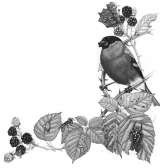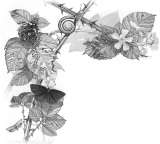Home sweet home
A one day activity for Key Stage 2 ( school year groups 4, 5, & 6 ).
The “Night Running Population Controller” ( Fox ) and friends have their job descriptions, and housing applications and have to find a home; will it be the marsh, field, or wood? What will happen if one of the habitats vanishes?
Introduction
This programme of earth education activities was designed by the Institute
of Earth Education. It is now being provided at centres all over the country.
In Nottinghamshire it is provided by “Wild Things”.
Home Sweet Home is designed;
a) to nurture respect for the natural world through first hand contact,
b) to provide understandings of different habitats and the specific needs
of the species that dwell there,
c) to explore the impact that human activity and natural change can have
on a habitat and it’s species,
d) to encourage children to make a positive contribution to caring for their
environment at a level appropriate to
their age.
Overview
The children are invited to the Home Sweet Home Job Centre, which has vacancies for plants and animals to live and work in the marsh, the field, and the wood. Jobs include positions such as; Tiny Buzzing Blood Sucker, and Animal Sheltering Marsh Maker.
1. Arrival. The children arrive at the Job Centre in the woods where they find a board listing job openings in the area. Everyone chooses a different job description which explains what their plant or animal does for a job and what its needs are. The group sets off to find a home in one of the available communities; the field, marsh or wood.
2. The Grand Tour. The Employment Services Workers take the group on a grand
tour of the three communities. While the special features of each habitat
are pointed out, everyone checks whether they can find all four of their
needs of life (energy, air, water and shelter) in each place. By the time
the tour is over all of the participants have found a community in which
they can meet all of their needs.
3. Post Boxes. Now they’ve chosen their communities it is time to get the
mail! Each habitat has a post box with letters addressed to the plants, insects
and animals which dwell their. Their mail tells each participant some fun
facts about their own plant or animal.
4. Community Court. While the group has been opening it’s mail, a problem
has arisen with the marsh. The marsh has been drained for development and
the marsh dwellers all now need to find a new home. A community court is
set up, with the Woodland and Field residents serving on the jury. The marsh
residents take it in turn to try to convince the jury that they can meet
all their needs of life in the woodland or the field instead. While some
succeed and join the jury,
others can’t survive without the marsh and the jury sends them to the Morgue.
5. Earth Walk. The group have now visited three different habitats and found out about the needs of the things that dwell there. The Earth Walk is a series of sensory activities designed to explore the woodland habitat from different perspectives, and to take a closer look at some of its smaller residents.
6. Departure. The children each receive a Home Sweet Home Ideas Book, with
further ideas for ways in which they can explore and help to protect and
improve habitats near where they
live and study.
Ideas such as the “Adopt A Piece of the Earth“ scheme, can be supported through Wild Thing’s partnerships with Learning Through Landscapes, The British Trust for Conservation Volunteers and Groundwork.
The Home Sweet Home programme provides a different and exciting experience, which brings to life the topic of habitats with drama and sensory activities. The programme provides a perfect accompaniment for other activities which explore habitats such as pond-dipping.
Evaluation comments for Home Sweet Home:
-“Both adults and children were actively involved in drama activities... to resolve problems which arose because of environmental change. In addition to this we were also involved in activities which made us look more closely at what was going on around us. All the activities were expertly put together and presented. Not only did those involved have an extremely enjoyable afternoon, but the work that took place effectively re-enforced aspects of the Science and Geography curriculum studied that term.” ( Kimberley Primary School )
-“They were really thrilled with their experiences.
They want me to say it was ‘brilliant’, ‘excellent’, ‘wicked’ ...” (
Ollerton Junior School. )


_thumb.jpg)
